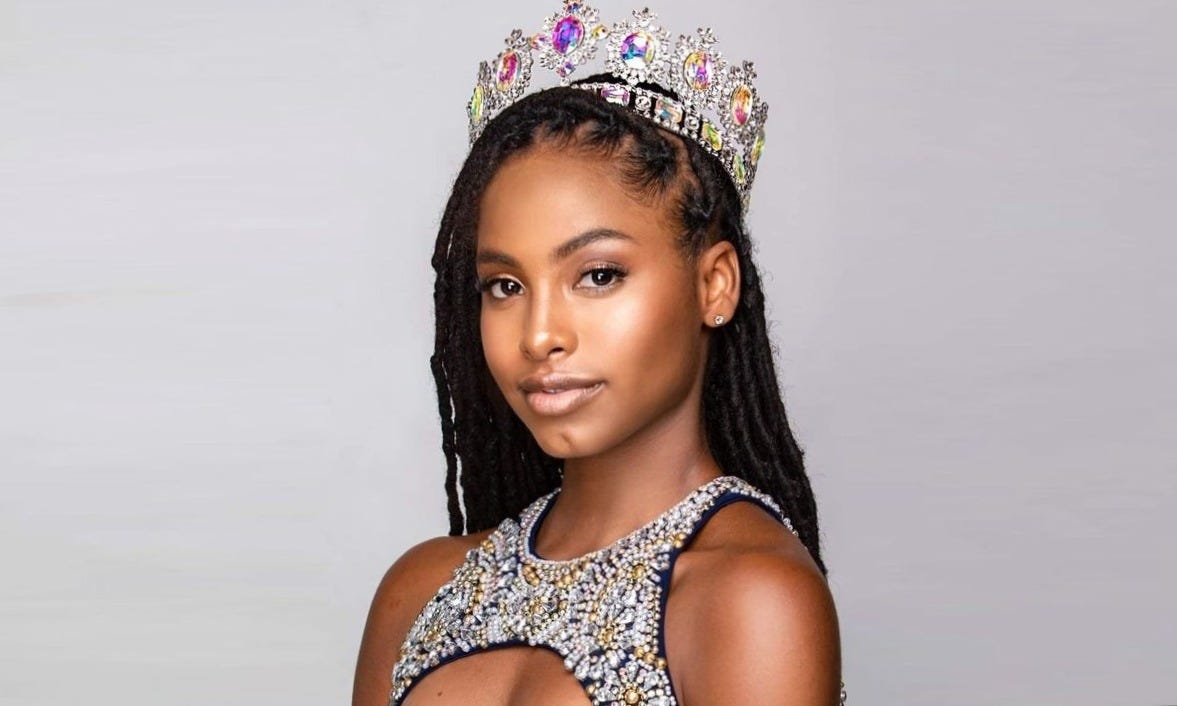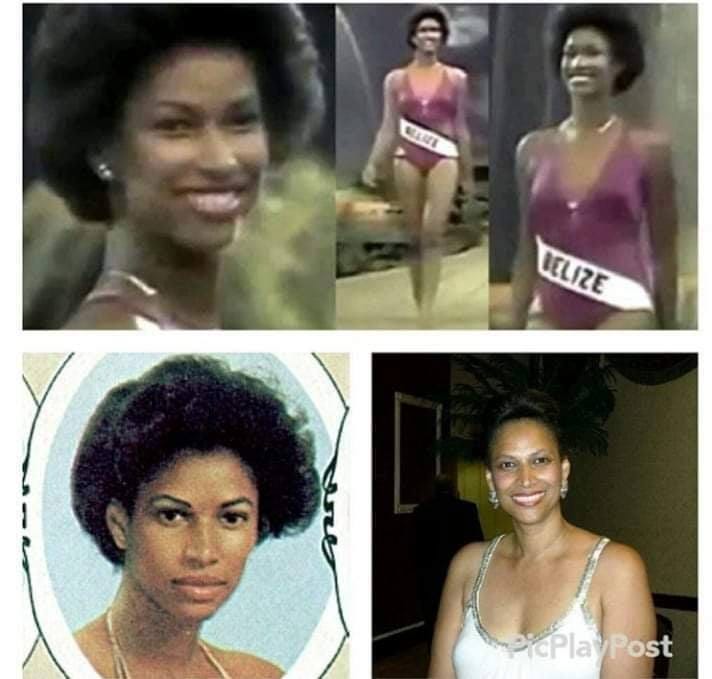It’s pageant season in Belize. As I type this, two cohorts of contestants are vying to represent the country at Miss Universe and Miss World. Another group of women is prepping for the Queen of the Bay Pageant, an historic contest steeped in Belizean patriotism and tradition.
It takes a lot to be a successful beauty queen. As ever, the role epitomizes what an “ideal woman” is in any given year. The criteria hasn’t really changed much, though: You must be svelte, beautiful, poised, intelligent, caring, gracious and have a mission to save the world in one way or another.
Many turn up their noses and invoke their sense of outrage at the notion of the “Miss.” Not me. Not ever. The work is hard. The critics are many. The disappointments are many. The expectations are sky-high.
Recommended reading by Alina Scott, who entered the Miss Universe Belize Pageant a few years ago.
Why do it?
Imagine you’re from a country where education, social mobility and professional opportunities are the privilege of a closed circle of elites. You want access to that circle, or you want to go beyond the borders of your country to make a life you cannot in your homeland. You have the raw materials: Some combination of smarts, looks, charm and that certain sparkle that true queens are born with.
For many young women around the globe, being a “Miss” is the key to a future of education, opportunity, financial security — even finding a partner to share one’s life with.
There have been beauty queens who “come from nothing,” and go far in pageants in their own countries and on the global stage. I have no data to support this, but my impression is that today’s “Miss” is more likely to come from a middle-class or upper middle-class background. Take Zozibini Tunzi, Miss South Africa, who was crowned Miss Universe in 2019. At the time, her mother was a school principal and her father worked for the department of higher education. As a Black woman from the poorest province in South Africa, her path to destiny would have been rocky—her parents’ credentials notwithstanding.
Priyanka Chopra, Miss India, won the Miss World Pageant in 2000. Now she’s an international superstar of the screen (in front of and behind the cameras). Her parents were army doctors who moved the family around India for a time. Chopra moved the the United States in her early teens. Oh, and she’s married to a Jonas Brother.
The trajectories of Zozibini and Priyanka are not the norm. Still, winning a pageant can mean money for education, a platform to amplify issues you care about, travel and the opportunity to connect with people who can mentor and champion you. If you can manage to take it not too seriously in terms of your sense of self-worth, it can all be a lot of fun.
My secret
A thing many people don’t know about me is that I was once a queen. By that I mean I was a “Miss.” As in, “Miss (insert country, city or state here).” You have to Google pretty deeply to find this out, although many Belizeans are in the know.
At the time I entered one of the two pageants I took part in, I had recently finished high school and my family had relocated to Belize (for the second time). Left to my own devices, I don’t think it would occurred to me to enter a beauty pageant. The Miss Belize coordinator encouraged me to do so, and my parents mulled it over.
My mother was wary of the whole thing, being a proponent of modesty and less flesh-revealing pursuits. She knew that my fairly thin skin and fragile ego would not bear up well if I did not take the crown. My father, ever thrifty, was enthusiastic when he heard the winner would get a full scholarship to a university in the States.
In our social media world, imagine the thickness of the skin and the grit required to don a swimsuit and sash.
I was all for it, hoping the pageant would allow me to make new friends and be accepted by my peers. Five years away from Belize—a lifetime, I thought—meant some of my old chums had made new friends and formed new cliques. Others had moved away. The boys who liked me now liked other girls. I really thought the pageant would be my ticket to happiness—the college scholarship would be a bonus.
In September 1986, I was crowned Miss Belize. There are many wonderful and not-so-wonderful things I will someday write more about when it comes to my experience as a queen. Suffice it to say, the job comes with expectations, responsibilities, adventures, privileges and events both ego-boosting and soul-crushing. And, for some reason, people with ugliness in their souls are often attracted to the pageant world—as handlers, glam squads, organizers, etc. It’s not all pretty.
Not skin deep
No Belizean woman has won Miss Universe or Miss World. In 1979, Sarita Acosta made us all so proud when she made the Top 12! In 2021, Destiny Wagner was crowned Miss Earth, making her the first Belizean to win one of the Big Four beauty pageants.
It may seem paradoxical, but there is a profound sisterhood among the women who are rivals for a crown. There is a deep understanding of the journey and what comes after. These are women with ambition, brains, tenacity and grit. I will always celebrate these qualities, which can only manifest from within.








